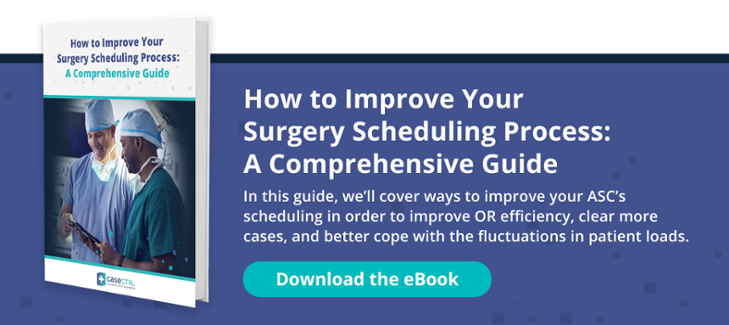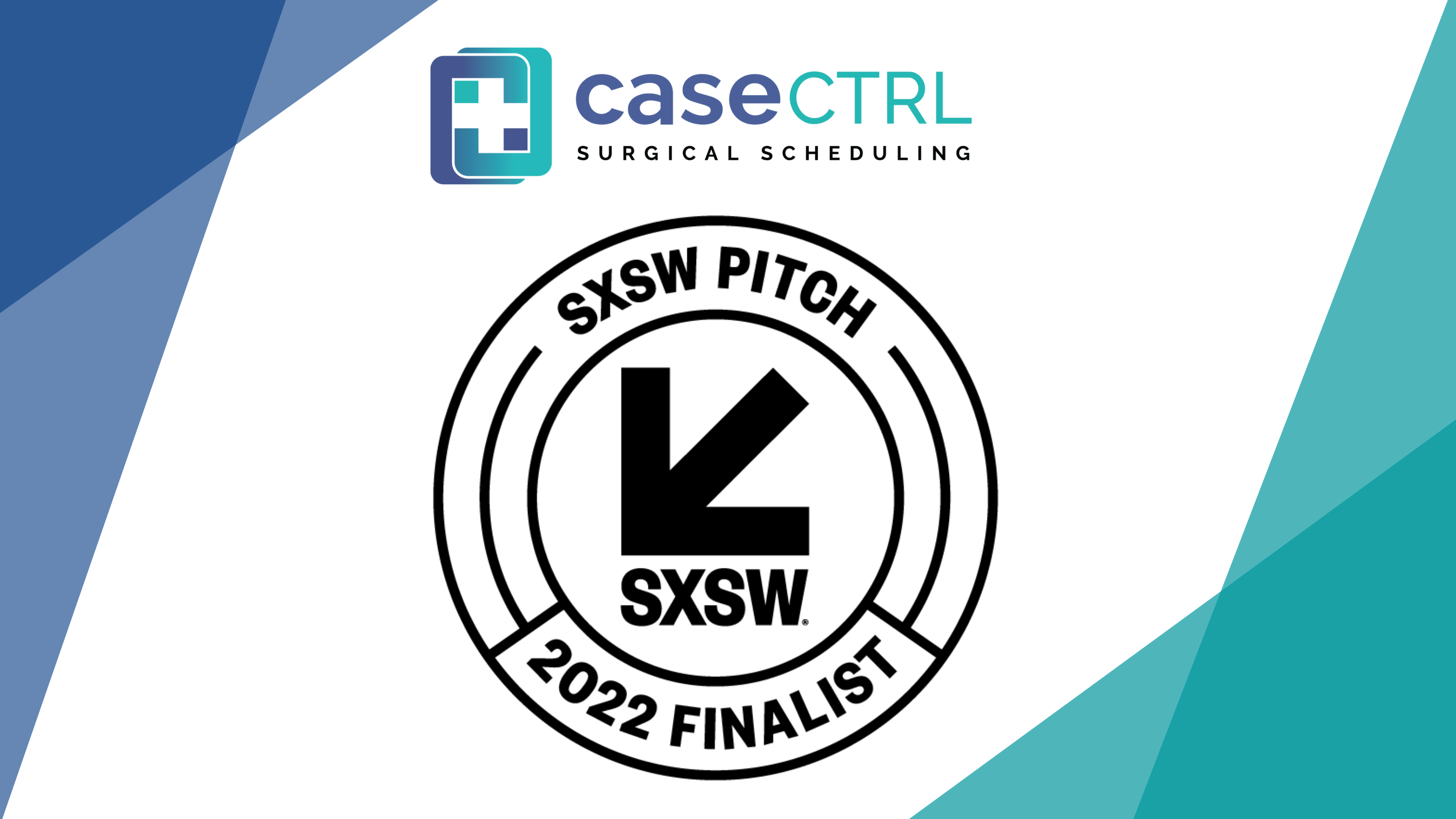Did you know that the average physician spends over 15 hours per week on paperwork, and a surgeon needs to communicate a minimum of 150 data points for one surgery to be accurately scheduled?
The cumbersome, laborious, and error-prone surgical scheduling process is causing surgeons to leave an average of $500k on the table every year. Getting the right information to the right parties is the key to orchestrating a successful surgery cost-efficiently. From recording supplies needed and communicating with insurance companies to coordinating anesthesiologists and getting clearance from other medical professionals — you need a trackable and measurable process to manage the complex workflows.
Using the right surgery form, making sure they're filled out correctly, and getting them to the right people at the right time without being bogged down by paperwork is essential to improving your practice's profitability.
What surgery forms do you need for scheduling and patient documentation and how can you ensure that they're processed in an accurate and timely manner to promote a more efficient and safer OR or ASC?
4 Most Important Surgery Forms
Beyond surgery consent forms, there are many crucial forms that all practices and ASCs gather for each procedure. Let’s take a look at the most important surgery forms you should use, why they're essential, and how you can streamline the procedures to improve your practice's operational cost-efficiency.
1. Preauthorization Form
What it is: Preauthorization is a type of surgery scheduling form that is also called precertification, prior authorization, insurance verification, and prior approval. It allows you to verify the portion of the cost that a patient's insurance policy will cover.
What information is needed: You need to provide the patient's personal information, carrier, and policy information, the name of the planned procedure, the associated billing code, the scheduled date of the procedure, the name of the provider or surgeon, and the diagnosis.
Why it's essential: The process helps optimize the reimbursement available for your practice, ASC, or OR. It confirms the amount covered by insurers and patients' responsibilities so you'll more likely get paid.
How tracking and automation help: You can track the progress of every preauthorization request and follow up appropriately to make sure that nothing falls through the cracks. In addition, the ability to automate the scheduling process as soon as a pre-authorization is approved keeps your pipeline moving.
Pro tip: Use a surgical scheduling platform with an intelligent surgical case construction method that makes sure all the steps and procedures are accounted for. This ensures that your staff is filling out preauthorization forms accurately and minimize time-consuming back-and-forth communication.
2. Doctor Preference Card (DPCs)
What it is: Also called Physician Preference Lists, Procedure Cards, Resource Cards, Pick Lists, or simply Cards, DPCs helps you communicate your preferences to the OR or ASC staff so that the right supplies and equipment are available for each surgery.
What information is needed: You should list out your preferred equipment, instruments, and supplies needed for each procedure.
Why it's essential: When only items needed for surgery are pulled and opened, it lowers cost and reduces waste. Also, you can improve operational cost-efficiency and treatment outcomes by ensuring that the right supplies, instruments, equipment, and medications are available at the right time.
How tracking and automation help: You can ensure that every OR and ASC is getting your most updated DPCs for every procedure before surgery by automating the process. You can minimize the cost associated with each surgery while making sure that you have what you need to deliver the best outcome.
Pro tip: An advanced surgical scheduling tool that offers an intelligent repository of procedure preferences can ensure that your most current case preferences are accessible to any scheduler so you can deliver predictable and accountable care.
3. Patient Surgical Assessment Form
What it is: It helps you collect information about a patient's medical history and routine medication before surgery.
What information is needed: Your patients will fill out their medical information including routine medications and supplements, medical history and pre-existing conditions, allergies, past operations, reaction to anesthesia, etc. You should also request information about the person who will take care of the patient post-surgery.
Why it's essential: Essentially, this form helps to ensure safe procedures. The information helps ensure that you aren't performing procedures or using medications that contradict your patients' current medical conditions or treatments. This can help prevent liability issues and ensure the best outcomes. Meanwhile, knowing how to contact the patients or their caregivers post-op allows you to follow up effectively.
How tracking and automation help: Tracking and automated routing ensures that every assessment form is submitted and reviewed by the right people before surgery to avoid contradictions. You can also set reminders to contact patients and their caregivers post-surgery to improve the patient experience.
Pro Tip: Using software such as CaseCRTL allows you to analyze patient- and case-specific risk factors. This helps you recognize patients who can benefit from specialist pre-operative clearance, optimize cases at the highest risk for readmission and complications, and identify opportunities to proactively avoid patient satisfaction pitfalls.
4. Surgery Change Form
What it is: This form communicates procedure changes or cancellation of a scheduled surgery to the parties involved.
What information is needed: Besides the details of the surgery (e.g., date, time, surgeon name, and patient name,) the form also collects information about the person requesting the changes and the reason for doing so.
Why it's essential: The information helps you manage canceled and rescheduled surgical cases effectively. For example, by freeing up resources reserved for the surgery or following up with the patients to ensure that they're getting the proper care.
How tracking and automation help: You can automate patient follow up to minimize the time your staff spends on contacting each person. This can help you effectively manage your pipeline so that no case falls through the cracks.
Pro Tip: Implement a surgical scheduling platform that allows you to automatically send out real-time notifications to all parties involved (e.g., staff, patients, surgeons, coordinators, assistants, anesthesia, the hospital, insurance) to minimize errors, miscommunications, and frustrating phone tags.
Make Surgery Forms Work Harder for You
Surgery forms allows you to collect crucial information and coordinate surgical procedures cost-efficiently. A streamlined and trackable process can further help you deliver the best treatment outcomes while avoiding costly errors and delays.
Implement a robust surgical scheduling platform to distribute and track these forms automatically. This helps ensure that that all the necessary information is collected at the right time and sent to the right people without adding administrative burdens to your staff, so you can optimize your patient experience and operational efficiency. If you’d like to learn more about how CaseCTRL can work for you, schedule a free demo today.







































